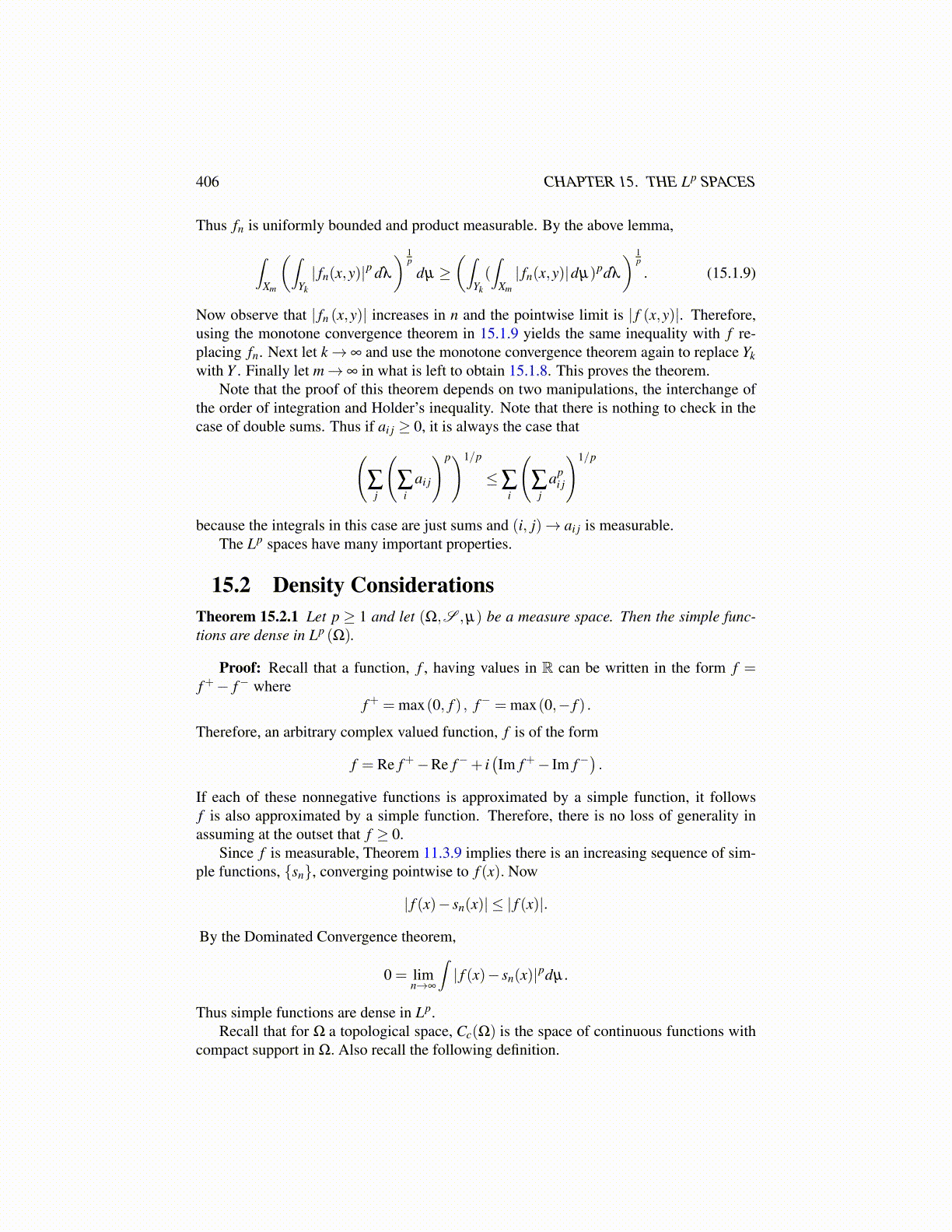
406 CHAPTER 15. THE Lp SPACES
Thus fn is uniformly bounded and product measurable. By the above lemma,
∫Xm
(∫Yk
| fn(x,y)|p dλ
) 1p
dµ ≥(∫
Yk
(∫
Xm
| fn(x,y)|dµ)pdλ
) 1p
. (15.1.9)
Now observe that | fn (x,y)| increases in n and the pointwise limit is | f (x,y)|. Therefore,using the monotone convergence theorem in 15.1.9 yields the same inequality with f re-placing fn. Next let k→ ∞ and use the monotone convergence theorem again to replace Ykwith Y . Finally let m→ ∞ in what is left to obtain 15.1.8. This proves the theorem.
Note that the proof of this theorem depends on two manipulations, the interchange ofthe order of integration and Holder’s inequality. Note that there is nothing to check in thecase of double sums. Thus if ai j ≥ 0, it is always the case that(
∑j
(∑
iai j
)p)1/p
≤∑i
(∑
jap
i j
)1/p
because the integrals in this case are just sums and (i, j)→ ai j is measurable.The Lp spaces have many important properties.
15.2 Density ConsiderationsTheorem 15.2.1 Let p ≥ 1 and let (Ω,S ,µ) be a measure space. Then the simple func-tions are dense in Lp (Ω).
Proof: Recall that a function, f , having values in R can be written in the form f =f+− f− where
f+ = max(0, f ) , f− = max(0,− f ) .
Therefore, an arbitrary complex valued function, f is of the form
f = Re f+−Re f−+ i(Im f+− Im f−
).
If each of these nonnegative functions is approximated by a simple function, it followsf is also approximated by a simple function. Therefore, there is no loss of generality inassuming at the outset that f ≥ 0.
Since f is measurable, Theorem 11.3.9 implies there is an increasing sequence of sim-ple functions, {sn}, converging pointwise to f (x). Now
| f (x)− sn(x)| ≤ | f (x)|.
By the Dominated Convergence theorem,
0 = limn→∞
∫| f (x)− sn(x)|pdµ .
Thus simple functions are dense in Lp.Recall that for Ω a topological space, Cc(Ω) is the space of continuous functions with
compact support in Ω. Also recall the following definition.